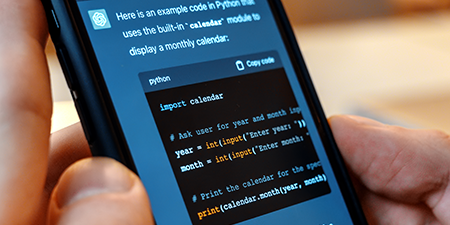Integrating Delphi with Python can be achieved through various methods, allowing you to
leverage the strengths of both languages. Here are a few approaches:
-
Using Python for Scripting: You can use Python scripts within your Delphi application. Delphi provides ways to execute external processes,
 so you can run Python scripts from within your Delphi application and communicate with them via standard input/output or files. Python's subprocess module is handy for this purpose.
so you can run Python scripts from within your Delphi application and communicate with them via standard input/output or files. Python's subprocess module is handy for this purpose. -
Python4Delphi (P4D): Python4Delphi (P4D) is a project that allows you to embed Python into Delphi applications. It provides tools to call Python scripts, manipulate Python objects, and even create Python GUI applications within the Delphi environment.
-
COM Automation: Python supports COM Automation, allowing you to create COM objects that can be accessed from Delphi applications. You can write Python scripts that expose functionality as COM objects and then consume these objects in your Delphi application.
-
Python DLLs: You can create Python extension modules in C/C++ and then use them in Delphi applications. This requires building Python extension modules using the Python/C API and then calling these modules from your Delphi application.
-
Socket Communication: You can establish communication between your Delphi application and a Python script using sockets. The Delphi application can act as a client or server, exchanging data with the Python script running as the corresponding counterpart.
-
RESTful APIs: You can create RESTful APIs using Python frameworks like Flask or Django, and then have your Delphi application communicate with these APIs over HTTP to exchange data and perform operations.
Coding Delphi with Python
To integrate Delphi with Python code, you have several options. One effective approach is to use Python4Delphi (P4D), which allows you to embed Python scripts and objects directly into Delphi applications. Here's how you can do it:
-
Install Python4Delphi (P4D): First, you need to download and install Python4Delphi. You can find the latest version and installation instructions on the Python4Delphi GitHub page or the official website.
-
Configure Python Interpreter: After installing Python4Delphi, you need to configure the Python interpreter that your Delphi application will use. This involves setting up the paths to the Python interpreter and library files.
-
Embed Python Code in Delphi: Once Python4Delphi is set up, you can start embedding Python code directly into your Delphi application. Here's a basic example of how to call Python code from Delphi:
var
PythonObject: PPyObject;
begin
PythonObject := PythonEngine.PyRun_String( '3 + 4', Py_eval_input );
ShowMessage( IntToStr( PythonEngine.PyInt_AsLong( PythonObject ) ) );
PythonEngine.Py_DecRef( PythonObject );
end;In this example, clicking on Button1 in your Delphi application will execute the Python code "print("Hello from Python!")".
-
Exchange Data Between Delphi and Python: Python4Delphi also allows you to exchange data between your Delphi application and Python scripts. You can pass variables, call functions, and manipulate objects between the two environments.
var
PythonObject: PPyObject;
begin
PythonObject := PythonEngine.PyRun_String( '3 + 4', Py_eval_input );
ShowMessage( IntToStr( PythonEngine.PyInt_AsLong( PythonObject ) ) );
PythonEngine.Py_DecRef( PythonObject );
end;In this example, the Delphi application evaluates the Python expression "3 + 4", retrieves the result, and displays it in a message box.
- Handle Errors and Exceptions: Make sure to handle errors and exceptions gracefully when integrating Delphi with Python. Python4Delphi provides mechanisms to catch and handle Python exceptions within your Delphi application. By using Python4Delphi, you can seamlessly integrate Python code into your Delphi applications, enabling you to leverage Python's extensive ecosystem for various tasks such as data processing, machine learning, and more, while still benefiting from the robustness and flexibility of Delphi for application development.
If you like the article and in need fo such a service, please dont hesitate to contact us



